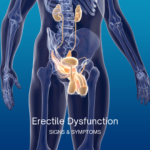Excessive Sleep: Understanding the Causes, Effects, and Solutions
Sleep is a fundamental aspect of human health, essential for physical recovery, cognitive function, and emotional wellbeing. While the majority of the population struggles with insufficient sleep, a notable subset experiences the opposite issue: excessive sleep. This condition, often referred to as hypersomnia, can be as disruptive as insomnia, impacting daily life and overall health. This article delves into the causes, effects, and solutions for excessive sleep.
Understanding Hypersomnia
Hypersomnia is characterized by prolonged sleep episodes at night or excessive daytime sleepiness (EDS), despite getting a full night’s rest. People with hypersomnia often feel compelled to take long naps during the day and may struggle with waking up in the morning. The condition can be classified into primary hypersomnia, which is a disorder in itself, and secondary hypersomnia, which is a symptom of another underlying condition.
Causes of Excessive Sleep
The causes of hypersomnia are varied and can be complex. They often include:
- Sleep Disorders: Conditions such as sleep apnea, restless legs syndrome, and narcolepsy can lead to excessive sleep. Sleep apnea, in particular, is known for causing repeated interruptions in breathing during sleep, leading to poor sleep quality and excessive daytime sleepiness.
- Mental Health Disorders: Depression and anxiety are commonly linked with hypersomnia. These conditions can disrupt normal sleep patterns and increase the need for sleep as a form of escape or coping mechanism.
- Medical Conditions: Chronic illnesses like diabetes, obesity, and heart disease are associated with excessive sleep. Additionally, neurological conditions such as Parkinson’s disease and multiple sclerosis can also contribute to hypersomnia.
- Medications: Certain medications, including those for allergies, hypertension, and psychiatric disorders, can cause drowsiness and contribute to hypersomnia.
- Lifestyle Factors: Poor sleep hygiene, irregular sleep schedules, and excessive use of alcohol or drugs can lead to excessive sleep. Lack of physical activity and unhealthy diet can also play a role.
Effects of Excessive Sleep
While occasional oversleeping may not be harmful, chronic excessive sleep can have significant negative impacts on health and wellbeing:
- Physical Health Risks: Excessive sleep is linked to a higher risk of obesity, diabetes, heart disease, and stroke. It can also lead to muscle weakness and reduced physical fitness.
- Mental Health Implications: People with hypersomnia often experience increased levels of stress, anxiety, and depression. The condition can also impair cognitive functions, leading to difficulties with memory, concentration, and decision-making.
- Impaired Daily Functioning: Excessive sleep can disrupt daily routines and responsibilities, affecting work, education, and social interactions. Individuals may find it difficult to maintain a regular schedule, leading to decreased productivity and strained relationships.
- Reduced Quality of Life: The constant fatigue and lethargy associated with hypersomnia can significantly reduce the quality of life. Individuals may miss out on enjoyable activities and opportunities due to their need for excessive sleep.
Solutions for Excessive Sleep
Addressing hypersomnia involves a multi-faceted approach that includes lifestyle changes, medical interventions, and sometimes behavioral therapy. Here are some strategies to consider:
- Improving Sleep Hygiene: Establishing a consistent sleep schedule, creating a comfortable sleep environment, and avoiding stimulants before bedtime can help regulate sleep patterns. Limiting screen time and engaging in relaxing activities before bed can also promote better sleep quality.
- Medical Evaluation: Consulting a healthcare provider is crucial to identify any underlying medical conditions or sleep disorders contributing to hypersomnia. Treatment may involve addressing the root cause, such as managing sleep apnea with continuous positive airway pressure (CPAP) therapy or adjusting medications.
- Cognitive Behavioral Therapy (CBT): CBT for insomnia (CBT-I) can be adapted for hypersomnia to help individuals develop healthier sleep habits and address any psychological factors contributing to their condition.
- Medications: In some cases, doctors may prescribe medications to help regulate sleep patterns and reduce excessive sleepiness. These can include stimulants or wakefulness-promoting agents like modafinil.
- Physical Activity and Diet: Regular exercise and a balanced diet can improve overall health and help regulate sleep. Physical activity promotes better sleep quality, while a nutritious diet supports overall wellbeing.
- Mental Health Support: Addressing any underlying mental health issues is essential. Therapy, counseling, and, if necessary, medication can help manage conditions like depression and anxiety that contribute to hypersomnia.
- Regular Monitoring: Keeping a sleep diary to track sleep patterns, daytime sleepiness, and any changes in behavior or mood can help identify triggers and monitor the effectiveness of treatment strategies.
Conclusion
Excessive sleep, while often overlooked, is a significant health concern that can impact various aspects of life. Understanding the causes and effects of hypersomnia is the first step toward finding effective solutions. By addressing underlying medical conditions, improving sleep hygiene, and seeking appropriate medical and psychological support, individuals can manage excessive sleep and improve their overall quality of life. If you or someone you know is struggling with hypersomnia, it is important to seek professional help to ensure a comprehensive and effective treatment plan.





